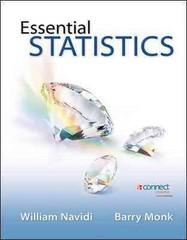Question
Unconventional monetary policy: financial policy and quantitative easing We have written the IS-LM model in terms: IS relation: Y= C (Y-T)+I (Y, r + x)+
Unconventional monetary policy: financial policy and quantitative easing
We have written the IS-LM model in terms: IS relation: Y= C (Y-T)+I (Y, r + x)+ G
LM relation: r =
Interpret the interest rate as the federal funds rate adjusted for expected inflation, the real policy interest rate of the Federal Reserve. Assume that the rate at which firms can borrow is much higher than the federal funds rate, equivalently that the premium, x, in the IS equation is high.
A) Suppose that the government takes action to improve the solvency of the financial system. If the government's action is successful and the banks become more willing to lend - both to one another and to nonfinancial firms - what is likely to happen to the premium? Can we consider financial policy a kind of macroeconomic policy?
B) Faced with a zero nominal interest rate, suppose the Fed decides to purchase securities directly to facilitate the flow of credit in the financial market. This is known as quantitative easing policy. If quantitative easing is successful, so that it becomes easier for financial and nonfinancial firms to obtain credit, what is likely to happen to the premium? What effect will this have on the IS-LM diagram?
Step by Step Solution
There are 3 Steps involved in it
Step: 1

Get Instant Access to Expert-Tailored Solutions
See step-by-step solutions with expert insights and AI powered tools for academic success
Step: 2

Step: 3

Ace Your Homework with AI
Get the answers you need in no time with our AI-driven, step-by-step assistance
Get Started


